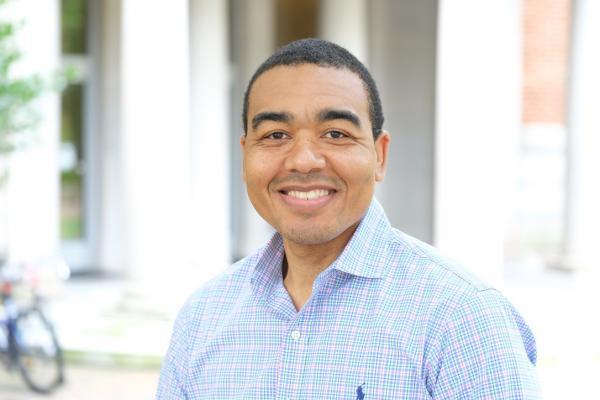
Advancing racial equity in autism research
Two themes are increasing in current autism research: how to be more inclusive of autistic voices and self-advocates and how to deal with longstanding racial and ethnic disparities. Brian Boyd, PhD, interim director of the Frank Porter Graham Child Development Institute (FPG) and William C. Friday Distinguished Professor in the School of Education at the University of North Carolina at Chapel Hill, is deeply committed to addressing these issues. During his recent presentation, “Advancing Racial Equity in Applied Behavior Analysis: Autism as a Case Example,” at the annual convention of the Association for Behavior Analysis International (ABAI), Boyd shared his insights and research.
Boyd noted that, with regard to autism, Black parents are more likely to have their early concerns about their child dismissed by pediatricians while Latino/a/e/x children may have trouble receiving a timely diagnosis because of cultural or language barriers they may face. Boyd’s preliminary research has found that Black families with autistic children encounter racial discrimination, which is associated with a lower quality of life. He now seeks to understand how racism and ableism impact marginalized communities.
More than 60 researchers and education providers attended the ABAI session as Boyd talked about the autistic advisory board he formed to provide advice and input on a research project he led about young children with autism. He is an advocate for the value of having stakeholders represented in research, believing that to be an important component of inclusion. His discussion of racial equity work centered on the importance of partnering with community-based stakeholders to advance that conversation. He believes that in order to both recognize inequities and achieve equity, researchers need to understand the strengths and assets of racially minoritized families. His talk addressed how to move applied behavior analysis research forward while also utilizing a broader lens interrogating how all autism research can address these issues.
Boyd believes that incorporating autistic perspectives and voices will help advance science, research, and understanding of autism. He acknowledges that this can be difficult because all autistic people do not agree since they are not a monolithic group. “We have to think about which voices are represented and whether we are hearing from autistic people of color or autistic people who may not have much language ability,” says Boyd. “Making sure that a broad group of autistic people are represented as we're doing this work is critical.”
“We have to think about which voices are represented and whether we are hearing from autistic people of color or autistic people who may not have much language ability,” says Boyd. “Making sure that a broad group of autistic people are represented as we're doing this work is critical.”
As part of his commitment to racial equity work, Boyd convened Black Empowerment in Autism (BEAM), a group of Black researchers in the field, last year. Since its launch, BEAM has met virtually but its inaugural in-person meeting will be held at UNC on June 9. While the group is primarily comprised of early career faculty, postdoctoral students, and doctoral students, it also includes people who are both researchers and parents of autistic children as well as a researcher who is autistic.
Because of Boyd’s leadership in the field, including his recent tenure as vice president of the International Society for Autism Research, he is often contacted by Black autism researchers seeking mentorship and support from someone who looks like them. Knowing the importance of representation and meaningful participation, Boyd created BEAM—and is bringing the group to UNC—to articulate a research agenda around issues of racial equity and improving outcomes and quality of life for Black autistic people and their caregivers. Boyd says that with 21 people participating in person and another seven virtual participants, the meeting represents a great opportunity to move the field forward. "I am so grateful to be able to host this inaugural meeting and do my part to support the next generation of Black autism researchers,” he says.
